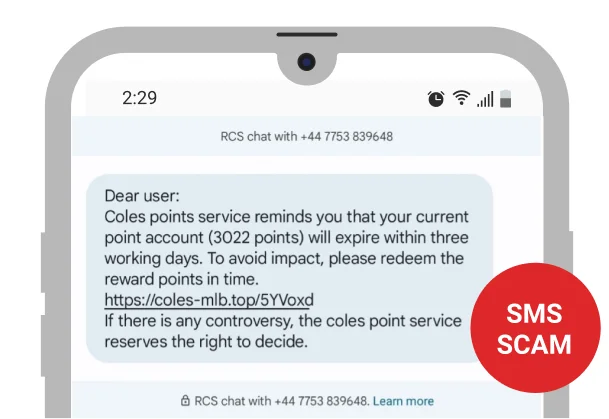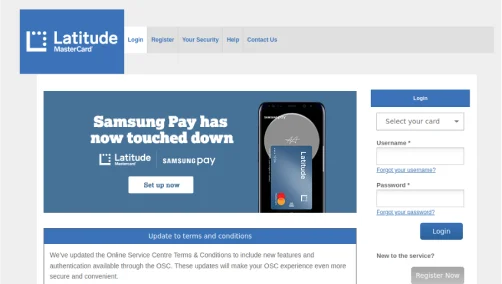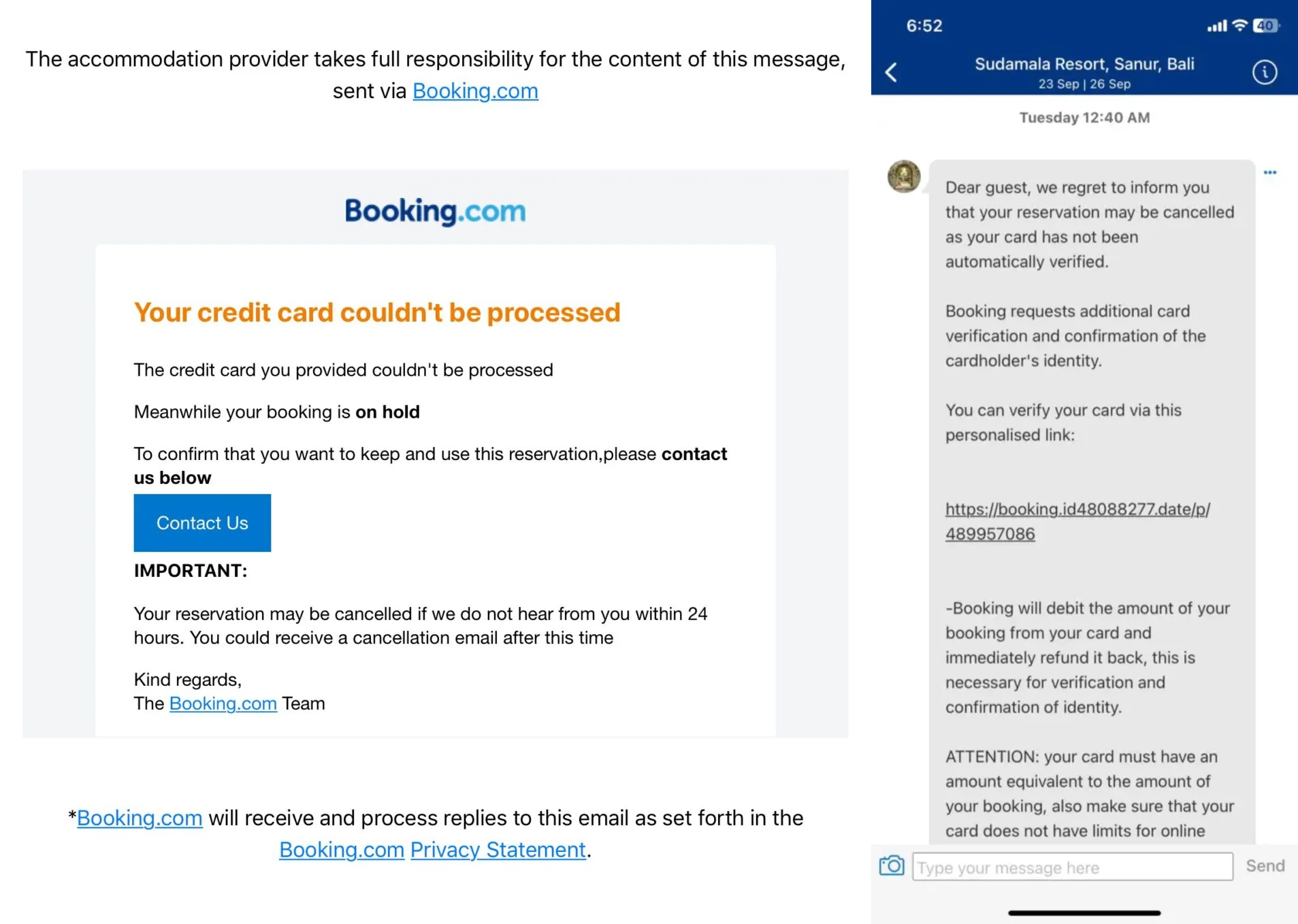Jan - Mar 2024
Loyalty Points scams

Watch out - We've identified several new scams targeting customers of loyalty programs from prominent Australian companies, including airlines, telecommunications, and retail companies.
Scammers send an SMS or email claiming your loyalty points are expiring. This message includes a link to a fake website, prompting you to log in and potentially provide credit card details to use your loyalty points.
Remember - If you follow the instructions in the email or text, scammers can steal your points, login details, and personal information to use on other platforms and commit identity fraud.
Protecting yourself
- Avoid clicking on links in text messages and be cautious of suspicious links in emails.
- Always navigate to the company’s app or website independently to check the status of your points
- Contact the company directly to verify the authenticity of any correspondence you receive.
Websites impersonating Latitude Service Centre

Watch out - Fraudulent websites mimicking Latitude's online banking login page have surfaced through advertisements in search engines like Google. This phishing scam deceives customers by creating fake sites resembling our legitimate login pages. These sites trick users into divulging sensitive information such as their Latitude ID, password, one-time passcode, and card details.
Scammers pay to place these misleading ads at the top of search results, leading customers to believe they are accessing genuine pages. Upon clicking these links, users are redirected to counterfeit websites where their personal and financial data can be compromised.
Remember – Be vigilant for misspellings in the advertisement's URL. Refrain from clicking on any suspicious ads, even if they rank high in search results. Never click on links purporting to direct you to Latitude's online banking login page. Instead, type latitudefinancial.com into your browser and access the login section from there.
If you encounter or suspect you have interacted with a phishing advertisement, please report it immediately to scams@latitudefinancial.com for further assistance in safeguarding your account.
Protecting yourself
Stay safe from potential scams by keeping informed and verifying the authenticity of Latitude Service Centre directly through trusted methods.
Gift cards purchase scam

Watch out - Gift cards are popular for birthdays and holidays, but scammers can also use them to exploit unsuspecting individuals. Scammers use deceptive tactics to trick people into buying gift cards and sharing the card details, security code, or PIN.
People claiming to be from government departments, agencies, and other bodies, such as the ATO, Director of Public Prosecutions, and the Department of Home Affairs, demand payment for fake debts or fines using gift cards or iTunes/Google Play cards. These demands are often made via phone call or email.
Remember - No matter how convincing they seem, only a scammer will ask for gift cards as payment. Legitimate organisations will never request payment in the form of a gift card.
Booking.com scam

Watch out - A recent scam has appeared targeting users of the popular accommodation site Booking.com. Scammers are using the site’s official email address, ‘noreply@booking.com’, and the messaging feature within the Booking.com app to deceive customers into revealing their payment details through phishing links.
Users receive fraudulent messages supposedly from hotels in Japan, Europe, Asia, and other popular tourist destinations often just before their scheduled stay.
Typically, these scam messages threaten to cancel reservations unless payment details are verified via a provided link within a short timeframe—ranging from 4 to 12 hours. Despite claims circulating, Booking.com denies any breach of its own systems, attributing the scam to compromised email systems of partner hotels.
Remember - Booking.com has reiterated it never requests credit card details through SMS or email. They recommend that customers contact their 24/7 customer service if they receive any dubious communication related to their bookings.
Protecting yourself:
If you receive a suspicious message from a hotel, Booking.com recommends contacting the hotel directly to verify its authenticity. Vigilance is key: consider changing your Booking.com password and scrutinising any messages for unusual language or grammatical errors, which may show a scam attempt.
Stay informed and cautious to protect your personal information from these increasingly sophisticated scams targeting travellers.